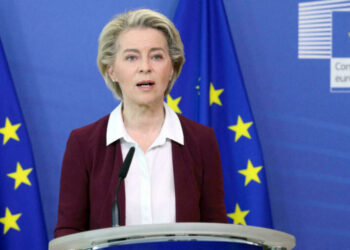Germany on Tuesday pushed back against critics of a 200-billion-euro ($198-billion) energy fund, as Berlin faces fresh accusations and citizens face a historic price shock.
France and key members of the European Commission are asking for EU-wide solutions to the energy crunch aggravated by war in Ukraine that has seen key supplier Russia turn off the gas taps.
They fear that European countries with high debts cannot afford the largesse demonstrated by Germany, the EU’s biggest economy whose industry had long been dependent on Russian gas, thus distorting the single market.
“I had the opportunity yesterday (Monday) to explain our protective shield to the commission and to my colleagues,” German Finance Minister Christian Lindner told reporters as he arrived for talks with EU counterparts.
“There had been a misunderstanding…. Our package… is proportionate if you compare the size and the vulnerability of the German economy,” he said.
“We are using our economic strength to protect ourselves.”
His defense came after two key members of the EU’s executive singled out Germany for its plan in a rare rebuke from Brussels to the bloc’s most powerful member state.
Internal market commissioner Thierry Breton and economy commissioner Paolo Gentiloni, from France and Italy respectively, said that Berlin’s plan “raised questions” on fairness and urged a “European instrument” to help countries.
Under consideration, they added, there should be a mechanism similar to the so-called SURE program, which the EU launched during the coronavirus crisis.
That provided member states with favorable EU loans to pay for short-time work schemes decimated by pandemic lockdowns.
“What we did with this SURE mechanism during the pandemic was an interesting proposal. It is based on loans. And I think it could be realistic,” Gentiloni said.
That program was less ambitious than the historic 750-billion-euro Covid recovery program which saw the EU’s 27 member states jointly emit fresh borrowing to save Europe’s economy.
Lindner, a fiscal conservative, ruled out any program that would resemble the landmark pandemic rescue.
“I don’t think joint borrowing will be a solution,” he said.























